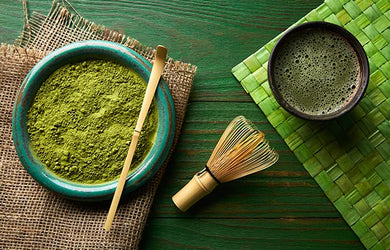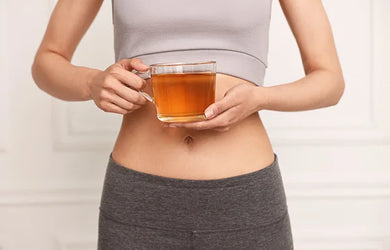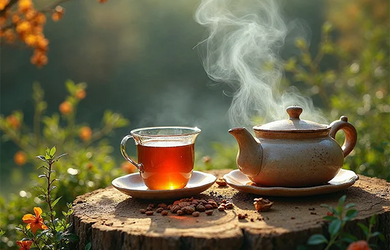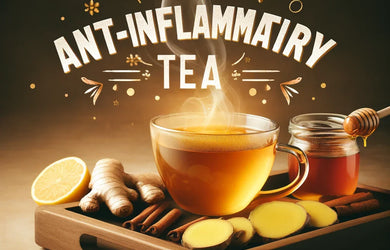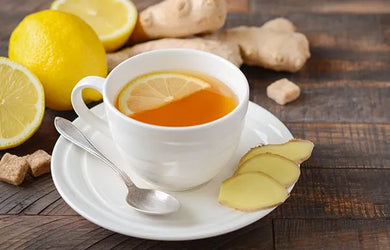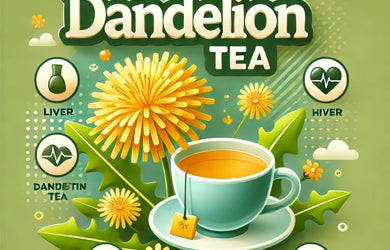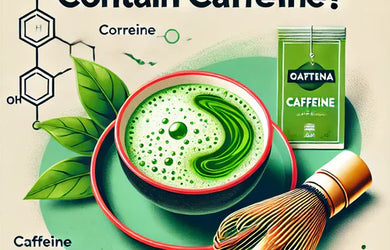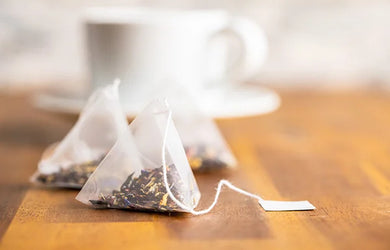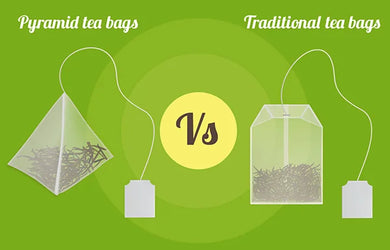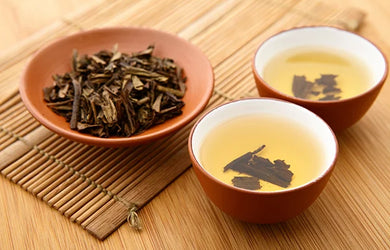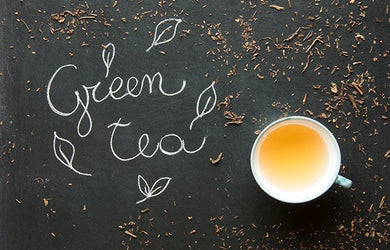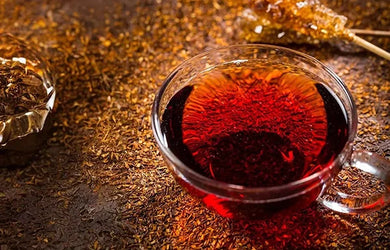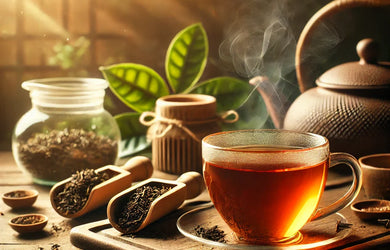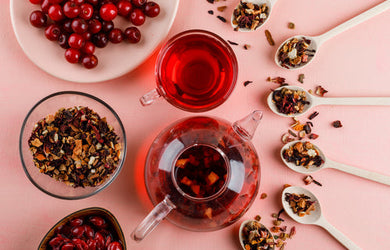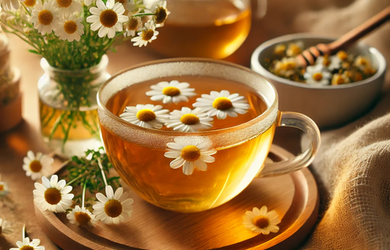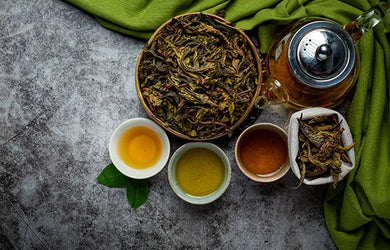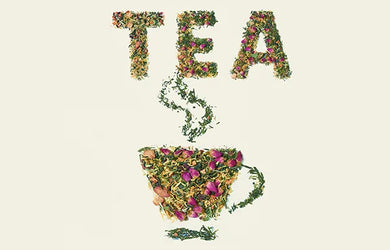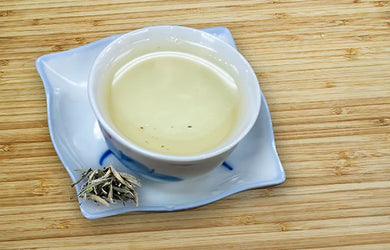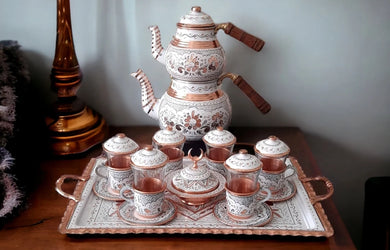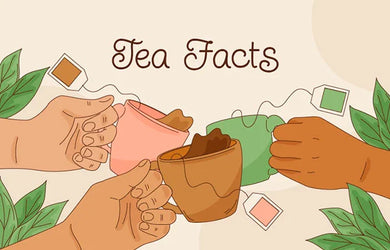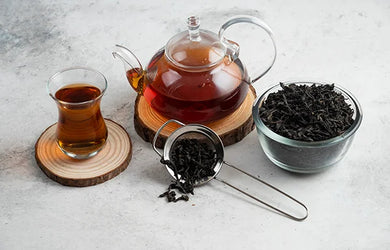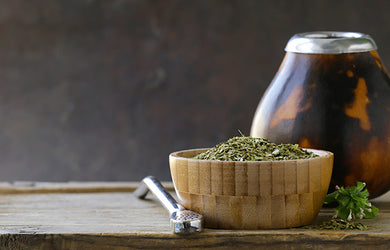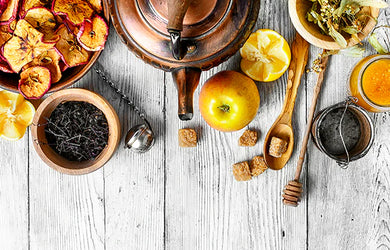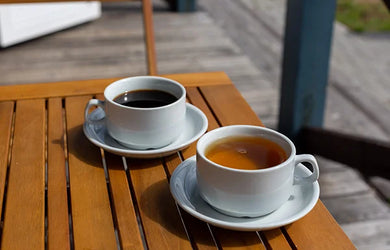even with a drink as ancient as green tea, some aspects remain less well-known. this realisation often occurs when you plan to include it in your routine but aren’t sure if you know everything you should. one such aspect that often gets overlooked is green tea's caffeine content.
yes we agree, the discussions about caffeine are common, but all the information is not easily accessible (at least not in the context of green tea). that’s exactly what we aim to do here! we’ll start with an overview of caffeine (just to ensure we’re on the same page) and then go into the specifics to give you a clear picture.
understanding caffeine
caffeine is a natural booster that’s been enjoyed for centuries. most commonly found in coffee, tea and several energy drinks, this substance perks up energy levels. want to know how? let’s start with the sleep signals (adenosine) which gradually build up as we go about our routine. they reach out to your brain’s receptors at some point, influencing it to tell your body it’s tired and needs rest.
however, caffeine has substances (called xanthines) that work like signal blockers. they block the sleep signals by attaching themselves to the brain’s receptors. when that happens, the sleep signals can’t communicate with the brain. that means the brain won’t know it needs to tell the body to rest. the result? your alertness increases and the perception of fatigue reduces.
however, excess of caffeine is bad. it can lead to negative side effects such as subtle tremors, insomnia and increased heart rate.

does green tea contain caffeine?
if you’re eager to try green tea but are hesitant because you’re worried about caffeine and have questions like “does green tea contain caffeine?” or “how much caffeine is in green tea?”, you’ve come to the right place! let’s find out the facts!
the camellia sinensis tea plant, which naturally contains caffeine, is the source of green tea. this implies that there’s inherent caffeine in green tea leaves as well. that proves the presence of caffeine, but knowing exactly how much caffeine is in green tea can be difficult because it varies depending on several factors, like the type of green tea as well as the processing and brewing methods.
on average, a cup (or about 240 ml) of green tea contains approximately 25-40 mg of caffeine. to give you an idea, a cup of coffee might have anywhere from 95 to 200 mg. that’s right, green tea caffeine is a lot less.
in addition to being lower in quantity, green tea caffeine is accompanied by an amino acid called l-theanine. this substance promotes relaxation without drowsiness. additionally, its unique combination with caffeine provides a more balanced and sustained energy boost, unlike the often intense effects of coffee.
with both the questions answered (“does green tea contain caffeine?” and “how much caffeine is in green tea?”), let’s move on to green tea benefits.
benefits of caffeine in green tea
drinking green tea has potential health benefits linked to its lower caffeine content and a unique combination with other natural compounds like l-theanine and antioxidants. some of these benefits include improved mental attentiveness, absence of subtle tremors and improved mood.
mental attentiveness: caffeine is primarily responsible for improving mental alertness and reducing fatigue realisation by blocking adenosine. green tea caffeine does the same but better! for at least two reasons - first, caffeine quantity in green tea is less and second, it combines with an amino acid, l-theanine (which is highest in green tea compared to other tea varieties), which reduces caffeine’s less desirable physiological effects (increase in blood pressure and heartbeat). basically, there’s improvement in focus and attention without the subtle tremors or shakiness caused by caffeine.
gradual release: green tea caffeine is less than that of coffee, but the release of caffeine in green tea lasts longer and is steadier. this means you get a milder and longer-lasting energy boost as compared to the sharp jolt from coffee.
other benefits: green tea caffeine combines with other compounds to offer various health benefits. it joins forces with antioxidants, like catechins, to help burn calories and improve mood by triggering the release of happy hormones - dopamine and serotonin.
caffeine content in different types of green tea
now that you’ve answers to the basic questions (“does green tea contain caffeine?” and “how much caffeine is in green tea?”), let’s check out the green tea caffeine content in some varieties.
low caffeine content (less than 20 mg per cup):
- hojicha has negligible caffeine levels because of its extended firing process, which alters leaf chemistry and imparts earthier notes.
medium caffeine content (20-30 mg per cup):
- sencha is the most common type of green tea in japan and offers a balanced amount of stimulation. it’s usually grown in direct sunlight, producing a moderate amount of caffeine.
- longjing, also known as dragon well tea, is pan-fired early in the processing stage which halts oxidation and preserves a moderate level of caffeine.
high caffeine content (up to 140 mg per cup):
- matcha has really high caffeine content due to its unique growing conditions and grinding levels. the entire leaf of this shade-grown tea is used to make powdered green tea, which increases the amino acids and caffeine content.
- gyokuro shares similarities with matcha, given its shadow treatment approach. boosted chlorophyll synthesis results in darker colours and denser nutrient compositions, which explains why there’s more caffeine in it than in traditional green tea varieties.
how much caffeine should i consume in a day?
caffeine is good for your health in moderation, but too much of it is not! however, how much is too much?
food standards australia new zealand (fsanz) states that the recommended daily dosage for healthy individuals is 400 mg and that women who are pregnant or nursing should only consume 200 mg of caffeine daily. the amount should be much lower for children under the age of eighteen, with a daily maximum of 3 mg per kilogram of body weight.
while the above recommendations come from a standard organisation, they’re not personalised. to know how much is enough for you, it’s better to get your doctor’s advice. this is crucial because excessive intake can lead to various short-term symptoms, including restlessness, anxiety, sleep disorders, and increased heartbeat and blood pressure. moreover, some rare health conditions like long qt syndrome (lqts) can increase the risk of coffee consumption
conclusion
well, you’ve made it to the end and uncovered some interesting facts about caffeine and its presence in green tea. after exploring all the fascinating aspects of green tea, one key takeaway is that it's a fantastic choice for a caffeine boost that won't leave you with tremors or other side effects of high-caffeine drinks.
the cherry on top is the wide variety of green teas, each with its level of caffeine content. this means you can choose a green tea variety based on both taste and caffeine content. why wait? consider starting with the flavours of green tea that have the right caffeine content for you, and enjoy the blend of flavour and health benefits it offers.
faqs on green tea caffeine
q. what is the primary source of caffeine in green tea?
a. we know that green tea comes from the leaves of the camellia sinensis plant, which is naturally rich in caffeine. the plant's leaves naturally contain caffeine, and the specific growing conditions, processing methods and preparation techniques further influence the final green tea caffeine content.
q. how does caffeine in green tea compare to other caffeinated beverages?
a. green tea caffeine is lower than that in coffee and energy drinks but higher than most sodas. a 250 ml cup of green tea has 25-45 mg of caffeine, compared to 96 mg in brewed coffee and about 72 mg in an energy drink. additionally, green tea caffeine doesn’t have side effects like other caffeinated beverages.
q. can decaffeinated green tea still contain traces of caffeine?
a. decaffeinating a beverage doesn’t remove caffeine in its entirety. the same is true for decaffeinated green tea which can still contain traces of caffeine. the decaffeination process removes most of the caffeine present in the tea leaves, but not all of it.
q. is green tea with higher caffeine levels more effective for energy boost?
a. the higher the green tea caffeine level, the more noticeable would be the energy boost. so, green tea varieties with more caffeine can be more effective for energy boost. however, it’s better to consider your caffeine sensitivity and stay within safe caffeine consumption limit, rather than going overboard with green tea varieties with higher caffeine content.









